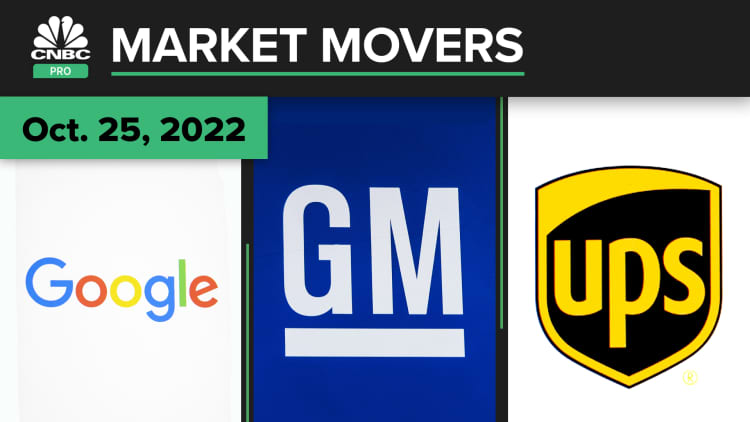
Stocks closed higher another session Tuesday, as investors assessed sliding yields and new data for further clues into the health of the U.S. economy.
The Dow Jones Industrial Average closed 337.12 points higher, or about 1.1%, to end at 31,836.74. The S&P 500 advanced 1.6%, closing at 3,859.11. The Nasdaq Composite popped 2.2%, landing at 11,199.12.
Tuesday's moves added to the sharp rallies seen in the previous two sessions. On Monday, the Dow and S&P 500 gained more than 1% each, while the Nasdaq advanced 0.9%. On Friday, the Dow surged more than 700 points.
A decline in bond yields contributed to the latest gains. The yield on the benchmark 10-year Treasury note was last down by around 15 basis points at 4.087%. The 2-year Treasury yield was last down around 3 basis points at 4.473%.
Taken together, the yield and major index moves are signs of investors "doubling down on expectations of an easier Fed," said Cliff Hodge, chief investment officer at Cornerstone Wealth.
Hodge said economic data issued Tuesday is also a point of hope for investors looking for the Federal Reserve to change course on interest rate hikes as the central bank tries to bat down inflation.
The S&P CoreLogic Case-Shiller 20-City House Price Index released Tuesday showed home prices fell 1.3% in the 20 core cities studied month-over-month in August, but were still 13.1% higher than a year ago. The Consumer Confidence Index also fell, showing the view on the economy has soured after two months of the outlook improving.
"It's a rainbow after a pretty big storm," said Paul Zemsky, chief investment officer of multi-asset strategies and solutions at Voya Investment Management, of Tuesday's bond moves and inflation data. "We're seeing enough slowing in the economy that we don't have to worry about the Fed really raising rates beyond what's already priced."
"I think we're finally getting to the place where the market has priced in the right amount of Fed tightening," he added. "Once you do that, the uncertainty in the market falls and we could see higher prices."
On top of that, traders pored over a smattering of corporate reports. General Motors and Coca-Cola rose 3.6% and 2.4%, respectively, after reporting stronger-than-forecasted earnings. Xerox plummeted 14% after earnings per share came in at less than half of what was expected.
So far this season, companies have proven they may be faring better than anticipated. FactSet data shows that, through Tuesday morning, 71% of the companies that reported topped analyst expectations for earnings per share.
Wall Street has its eye on Big Tech quarterly earnings. Alphabet and Microsoft post results on Tuesday after the bell. Meta Platforms, Amazon and Apple follow later in the week. Given their sheer size and market capitalization, any moves are likely to drive the market going forward.
Lea la cobertura del mercado de hoy en español aquí.
Correction: An earlier version of this article misstated the day for Microsoft's earnings.

